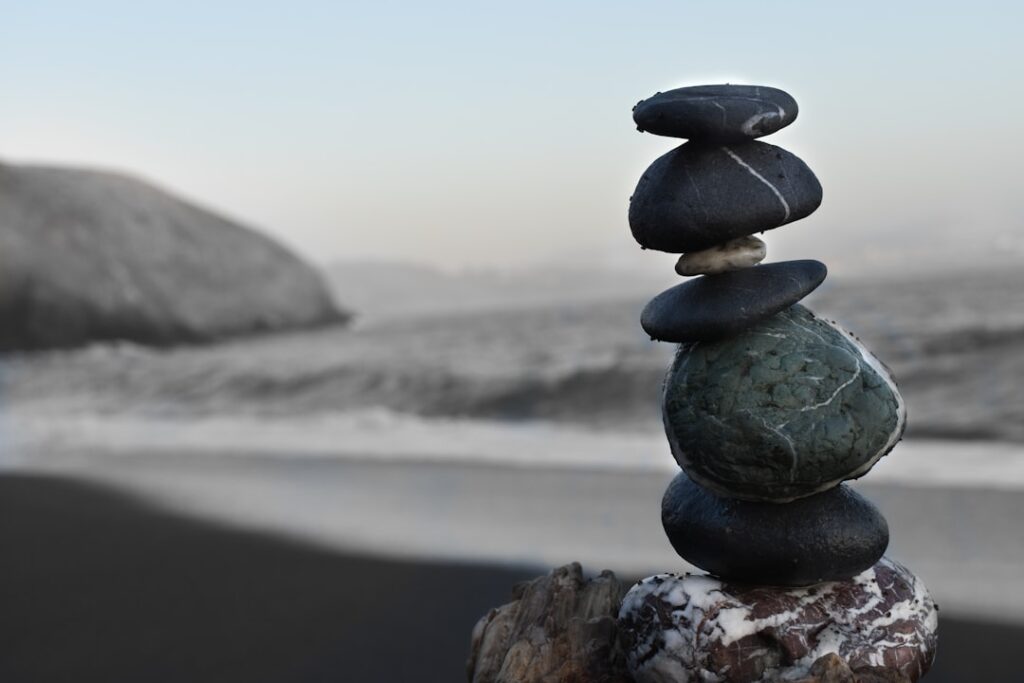Self-care is a crucial aspect of maintaining overall well-being and mental health. It involves taking deliberate actions to care for your physical, emotional, and mental health. Many people often overlook the importance of self-care, believing that they don’t have the time or that it’s selfish to prioritize their own needs. However, self-care is not a luxury; it is a necessity. When you neglect self-care, you are more prone to burnout, stress, and physical and mental health issues. By prioritizing self-care, you are better able to manage stress, improve your mood, and enhance your overall quality of life.
Self-care is not just about pampering yourself; it’s about making choices that support your well-being. This can include setting boundaries, saying no to things that drain your energy, engaging in activities that bring you joy, and seeking support when needed. It’s about recognizing your own needs and taking proactive steps to meet them. When you prioritize self-care, you are better equipped to handle life’s challenges and responsibilities. It allows you to recharge and refuel so that you can show up as your best self in all areas of your life.
Key Takeaways
- Self-care is essential for maintaining physical, mental, and emotional well-being.
- Identifying your self-care needs and priorities is crucial for creating an effective self-care routine.
- Creating a self-care routine involves setting aside dedicated time for self-care activities and making them a priority.
- Setting boundaries and learning to say no are important aspects of self-care to avoid burnout and overwhelm.
- Practicing mindfulness and meditation can help reduce stress and improve overall well-being.
Identifying Your Self-Care Needs and Priorities
Identifying your self-care needs and priorities is an essential step in creating a self-care routine that works for you. Everyone’s self-care needs are different, so it’s important to take the time to reflect on what activities and practices make you feel rejuvenated and restored. Start by making a list of activities that bring you joy, calm, and relaxation. This could include things like reading a book, going for a walk in nature, practicing yoga, or spending time with loved ones.
It’s also important to consider your physical, emotional, and mental needs when identifying your self-care priorities. For example, if you find that you often feel physically drained, you may want to prioritize activities that support your physical well-being, such as regular exercise or getting enough sleep. If you struggle with managing stress and anxiety, you may want to focus on activities that promote relaxation and mindfulness, such as meditation or deep breathing exercises. By taking the time to identify your specific self-care needs and priorities, you can create a personalized self-care routine that truly supports your overall well-being.
Creating a Self-Care Routine
Once you have identified your self-care needs and priorities, the next step is to create a self-care routine that incorporates these activities into your daily or weekly schedule. It’s important to be intentional about making time for self-care and treating it as a non-negotiable part of your routine. This may involve setting aside specific time slots for self-care activities or integrating them into your existing daily schedule.
When creating a self-care routine, it’s important to be realistic about the time and resources you have available. You don’t need to dedicate hours each day to self-care; even small, consistent actions can make a significant difference in your overall well-being. Start by incorporating one or two self-care activities into your routine and gradually build from there. It’s also important to be flexible and open to adjusting your routine as needed based on changes in your schedule or priorities.
Setting Boundaries and Saying No
Setting boundaries and learning to say no are essential aspects of self-care. It’s important to recognize that it’s okay to prioritize your own needs and well-being, even if it means saying no to others. Setting boundaries involves clearly communicating your limits and expectations to others and advocating for yourself when necessary. This may involve saying no to additional work responsibilities, social engagements, or other commitments that may compromise your well-being.
Learning to say no can be challenging, especially if you are used to putting others’ needs before your own. However, it’s important to remember that saying no is not selfish; it’s an act of self-respect and self-preservation. By setting boundaries and saying no when needed, you are better able to protect your time and energy and focus on activities that truly support your well-being.
Practicing Mindfulness and Meditation
Mindfulness and meditation are powerful practices that can significantly enhance your self-care routine. Mindfulness involves being fully present in the moment and paying attention to your thoughts, feelings, bodily sensations, and the world around you without judgment. It can help reduce stress, improve mood, and enhance overall well-being. Meditation is a specific practice that involves focusing the mind and eliminating the stream of jumbled thoughts that may be crowding your mind and causing stress.
Incorporating mindfulness and meditation into your self-care routine can be as simple as taking a few minutes each day to sit quietly and focus on your breath or engaging in a guided meditation practice. There are many resources available, such as meditation apps or online videos, that can help you get started with a mindfulness or meditation practice. By making these practices a regular part of your self-care routine, you can cultivate a greater sense of calm, clarity, and resilience in the face of life’s challenges.
Engaging in Physical Self-Care Activities

Physical self-care activities are an important aspect of overall well-being. Engaging in regular physical activity not only supports your physical health but also has significant benefits for your mental and emotional well-being. Exercise has been shown to reduce stress, improve mood, boost energy levels, and enhance overall quality of life.
When incorporating physical self-care activities into your routine, it’s important to choose activities that you enjoy and that align with your preferences and abilities. This could include activities such as walking, running, swimming, yoga, dancing, or participating in group fitness classes. The key is to find activities that bring you joy and make you feel good both physically and mentally. By making physical self-care a priority in your routine, you can experience the many benefits of regular exercise on your overall well-being.
Seeking Support and Professional Help
Finally, seeking support and professional help is an important aspect of self-care, especially if you are struggling with mental health issues or significant life challenges. It’s okay to ask for help when needed and to seek out the support of friends, family members, or mental health professionals. Talking about your feelings and experiences with trusted individuals can provide comfort, validation, and perspective.
If you are struggling with ongoing mental health issues or find that self-care alone is not enough to manage your well-being, it’s important to seek professional help from a therapist or counselor. Mental health professionals can provide support, guidance, and evidence-based interventions to help you navigate through difficult times and improve your overall well-being. Remember that seeking help is not a sign of weakness; it’s a courageous act of self-care that can lead to significant positive changes in your life.
In conclusion, self-care is an essential aspect of maintaining overall well-being and mental health. By understanding the importance of self-care, identifying your specific needs and priorities, creating a personalized self-care routine, setting boundaries and saying no when needed, practicing mindfulness and meditation, engaging in physical self-care activities, and seeking support when necessary, you can cultivate a greater sense of balance, resilience, and well-being in all areas of your life. Prioritizing self-care is not selfish; it’s an act of self-respect and self-preservation that allows you to show up as your best self in all aspects of your life.
If you’re looking for more tips on self-care, be sure to check out the article “The Importance of Creating a Relaxing Home Environment” on OakSkyHome. This insightful piece offers practical advice on how to transform your living space into a sanctuary for self-care and relaxation. With helpful tips and inspiring ideas, it’s a must-read for anyone seeking to enhance their self-care routine. Read more here.
FAQs
What is self-care?
Self-care refers to the practice of taking care of one’s own physical, mental, and emotional well-being. It involves activities and behaviors that promote health, reduce stress, and enhance overall quality of life.
Why is self-care important?
Self-care is important because it helps individuals maintain a healthy balance in their lives. It can reduce the negative effects of stress, improve overall well-being, and prevent burnout.
What are some examples of self-care activities?
Examples of self-care activities include exercise, meditation, getting enough sleep, eating a balanced diet, spending time with loved ones, engaging in hobbies, and seeking professional help when needed.
How can I practice self-care?
You can practice self-care by prioritizing your physical and mental health, setting boundaries, managing your time effectively, and engaging in activities that bring you joy and relaxation.
What are the benefits of practicing self-care?
The benefits of practicing self-care include reduced stress, improved physical and mental health, increased resilience, better relationships, and a greater sense of overall well-being.



